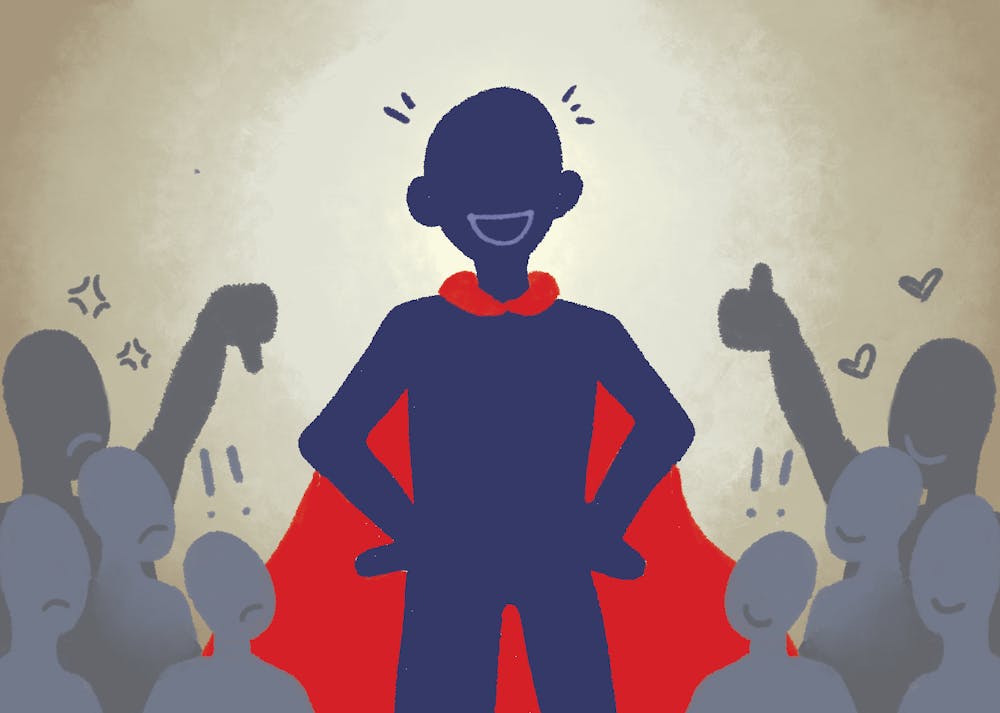There are currently 7.8 billion people in the world. In two years, the global population is estimated to reach 8 billion.
With these numbers in mind, it’s easy to feel lost in the crowd, finding it impossible to stand out in a community so vast and individual. However, for some of Gen Z, this doesn’t seem to be a problem — at least at face value.
The rise of TikTok has led to a multitude of trends; from viral dances to virtual musicals, the platform has provided a wide array of entertainment.
The rise of the “main character" is less of a typical trend and more of a mindset that creates a new wave of promoting self confidence through romanticizing life.
The main character mindset allows us take control of our personal narrative with the end goal of living a life reminiscent of an indie coming-of-age movie.
Living with the goal of becoming the plot's protagonist can make people ask why they aren’t satisfied with life and how they’re holding themselves back from living life to the fullest.
In an age where social media reigns supreme, young people have long endured self-image complications and feelings of insecurity due to online comparison. Approximately one in four teenagers today report symptoms of depression and nearly one in three teenagers experience anxiety disorders.
By thinking of yourself as the narrative's main character, your existence becomes imbued with a sense of purpose and importance. As the center of the story, one begins to feel the need to create the best “plot” possible, allowing them to have a much more positive and renewed sense of self.
For many, it’s a way to grapple with the meaning of life by coming to terms with the fact we are the greatest influencer of what happens in our own lives. For others, it can serve as a reminder that certain obstacles are temporary and can be overcome easily.
Becoming the main character has allowed some to find a new sense of joy in life, chasing after small protagonist moments such as dancing in the rain or watching the sunset.
This mindset is harmless, until it goes too far.
At its best, the main character mindset evokes individuality and confidence. At its worst, it can foster narcissistic, apathetic tendencies that cause an onslaught of selfish behavior.
By putting ourselves at the center of the universe, we play a dangerous game with our egos.
Feeding too much into this protagonist complex can cause the detachment of real life consequences from the minds of the “main character,” who are obsessed with the idea of having the most idealistic life possible.
The rise of the "main character," like many facets of the internet, becomes a competition of who can live life to the fullest, seeking out every possible opportunity to appear more unique than others. This competition completely defeats the face-value purpose of confidence, creating underlying harm where there were intentions for good.
Quite often, this protagonist complex comes with a victim complex, or the idea that everything bad or undesirable that happens is the result of others. As the center of the story, everything must revolve around them, and they never see themselves in the wrong.
The perpetuation of your own interests at the expense of others in the name of a better narrative shows others you’re incapable of taking their feelings into consideration. This is extremely detrimental to the relationships we make in our lives, as it gives loved ones the impression we view them as one-dimensional and replaceable.
It’s not unhealthy to see yourself as the main character of your life. Seeing your internal monologue as the narrator and thinking of yourself as the protagonist to make life feel more meaningful is perfectly OK.
For this to stay positive, we must make the important recognition that everyone’s lives are just as rich and multi-dimensional. We’re all equally individual, working through our own complex lives with victories and defeats as well as loves and losses.
We’re all the main characters of our own lives. But being the main character in your own narrative doesn’t mean you can’t be the supportive side character in the lives of others.
Reach the reporter at jecote@asu.edu and follow @jillianecote on Twitter.
Like The State Press on Facebook and follow @statepress on Twitter.
Continue supporting student journalism and donate to The State Press today.




